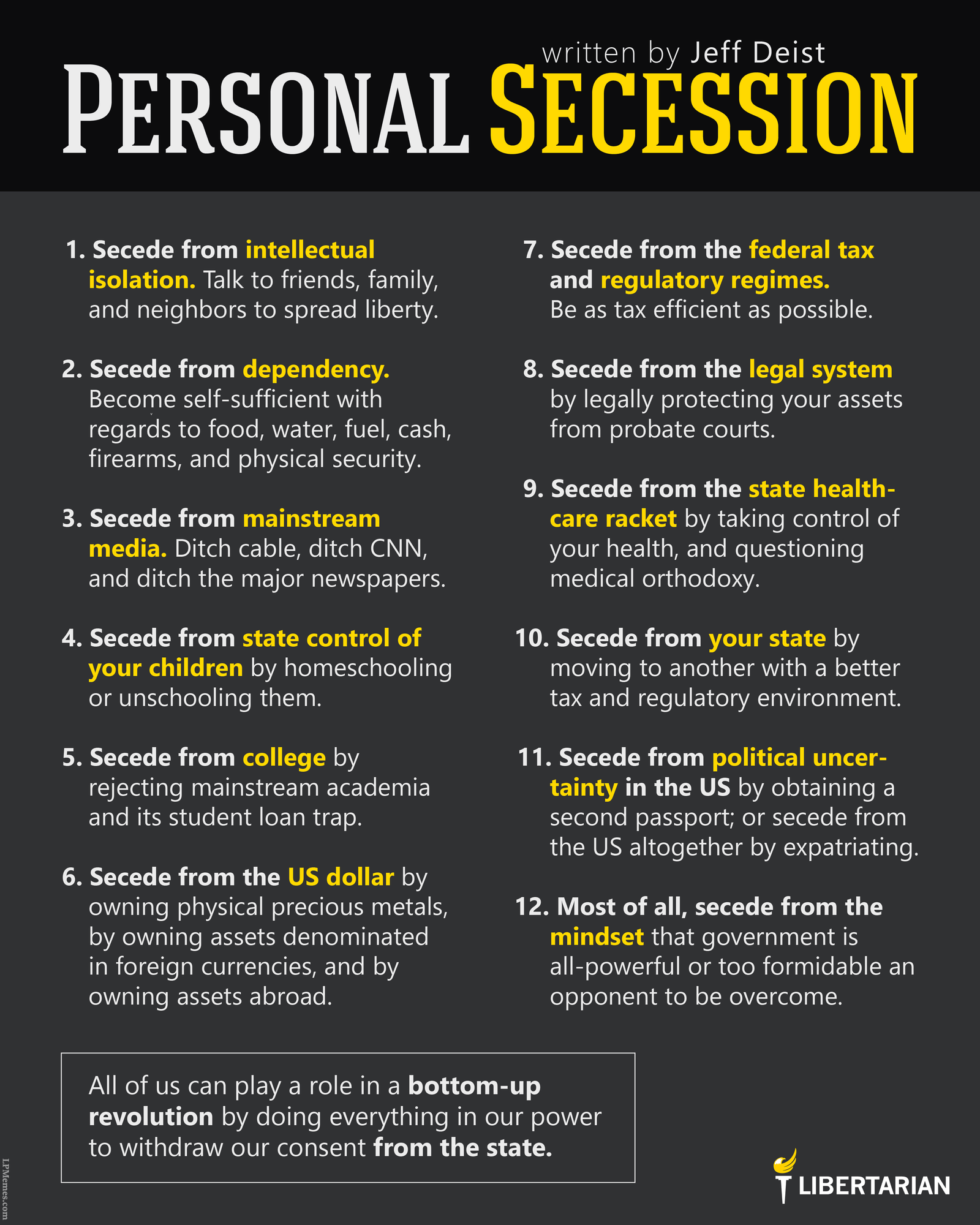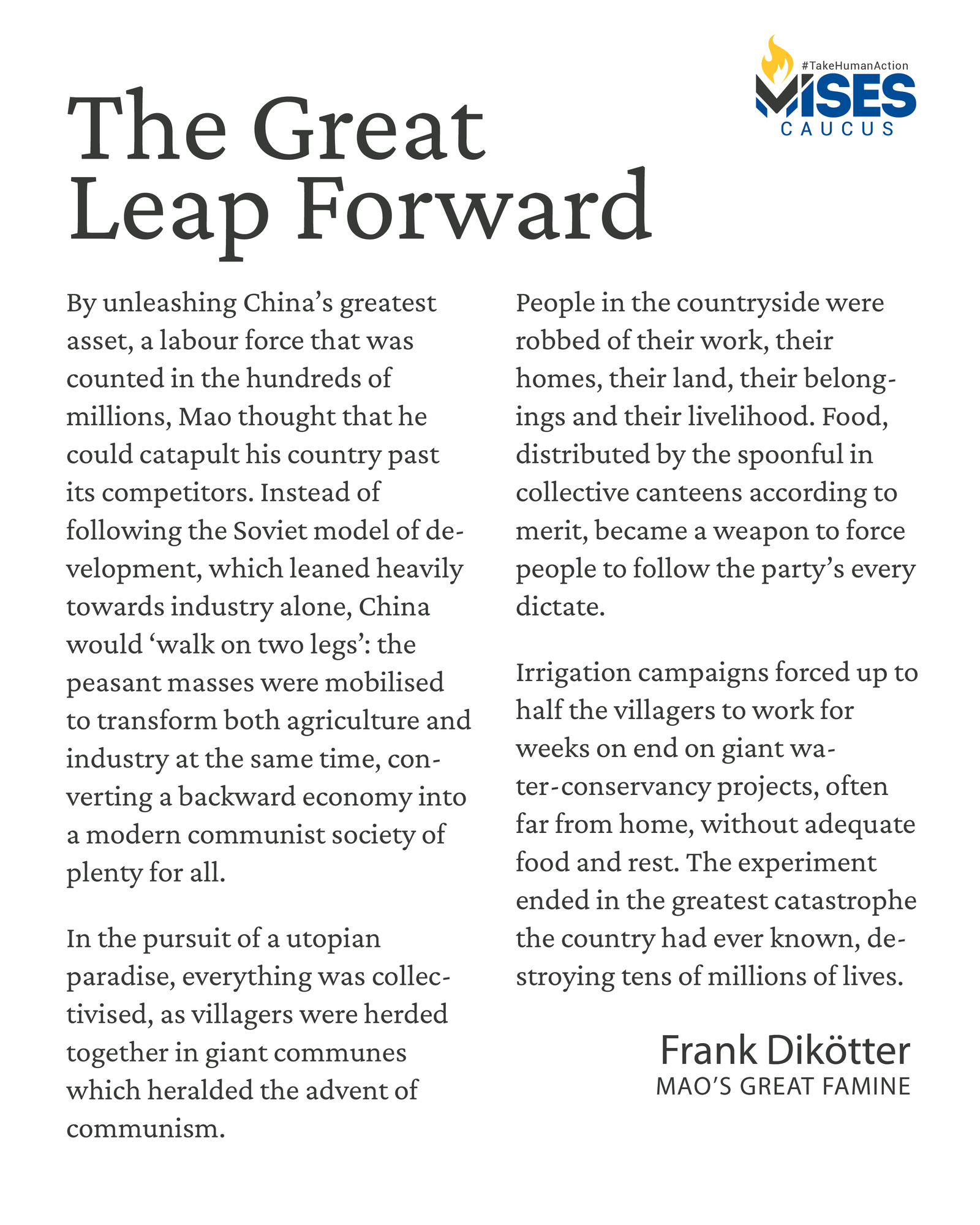- Secede from intellectual isolation. Talk to friends, family, and neighbors to spread liberty.
- Secede from dependency. Become self-sufficient with regards to food, water, fuel, cash, firearms, and physical security.
- Secede from mainstream media. Ditch cable, ditch CNN, and ditch the major newspapers.
- Secede from state control of your children by homeschooling or unschooling them.
- Secede from college by rejecting mainstream academia and its student loan trap.
- Secede from the US dollar by owning physical precious metals, by owning assets denominated in foreign currencies, and by owning assets abroad.
- Secede from the federal tax and regulatory regimes. Be as tax efficient as possible.
- Secede from the legal system by legally protecting your assets from probate courts.
- Secede from the state healthcare racket by taking control of your health, and questioning medical orthodoxy.
- Secede from your state by moving to another with a better tax and regulatory environment.
- Secede from political uncertainly in the US by obtaining a second passport; or secede from the US altogether by expatriating.
- Most of all, secede from the mindset that government is all-powerful or too formidable an opponent to be overcome.
All of us can play a role in a bottom-up revolution by doing everything in our power to withdraw our consent from the state. —Jeff Deist
- Secede from intellectual isolation. Talk to friends, family, and neighbors to spread liberty.
- Secede from dependency. Become self-sufficient with regards to food, water, fuel, cash, firearms, and physical security.
- Secede from mainstream media. Ditch cable, ditch CNN, and ditch the major newspapers.
- Secede from state control of your children by homeschooling or unschooling them.
- Secede from college by rejecting mainstream academia and its student loan trap.
- Secede from the US dollar by owning physical precious metals, by owning assets denominated in foreign currencies, and by owning assets abroad.
- Secede from the federal tax and regulatory regimes. Be as tax efficient as possible.
- Secede from the legal system by legally protecting your assets from probate courts.
- Secede from the state healthcare racket by taking control of your health, and questioning medical orthodoxy.
- Secede from your state by moving to another with a better tax and regulatory environment.
- Secede from political uncertainly in the US by obtaining a second passport; or secede from the US altogether by expatriating.
- Most of all, secede from the mindset that government is all-powerful or too formidable an opponent to be overcome.
All of us can play a role in a bottom-up revolution by doing everything in our power to withdraw our consent from the state. —Jeff Deist


